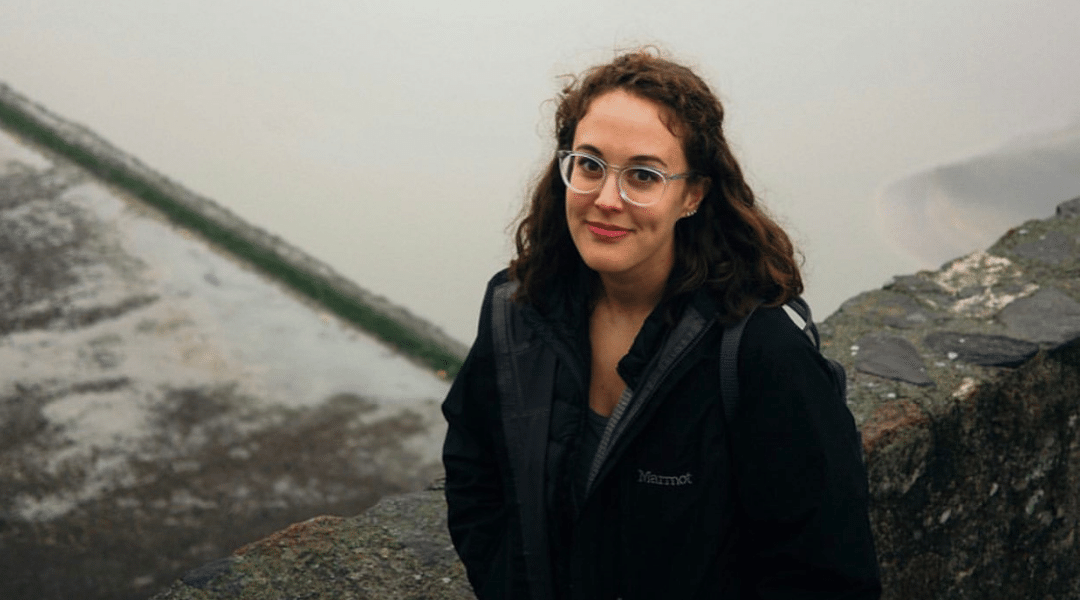For Catherine Hitchings Plating ’10, a desire to help others and to solve problems led her—rather unexpectedly, she admits—to a career as an occupational therapist. After graduating from Covenant College in 2014 with a degree in biology, Plating spent time working with the Early Learning Center at Siskin Children’s Institute, which is known for its unique and inclusive classrooms, designed to engage children with special needs as well as those who are typically developing. It soon became clear—Plating had found her niche. She earned her doctorate degree in occupational therapy from UTC in 2019 and currently works as an occupational therapist at Children’s Hospital at Erlanger, where she helps kids reach functional life goals to improve their quality of life and independence.
Q: How did you get into what you’re doing now? Did you always know you wanted to enter your field?
A: I knew I wanted to help people and that I didn't want to work at a desk all day. I didn't really know what occupational therapy was until the end of college. But after shadowing a few different occupational therapists, it really solidified the fact that it was a profession I wanted to pursue. I enjoy working with other people and solving problems, so occupational therapy ended up being a great fit.
Q: What’s the best piece of advice you got during your time at GPS? Do you remember who it came from?
A: You should always be open to changing your mind and, when you do, you shouldn’t fear taking that step, especially when you learn new information! That type of self-awareness, humility, and flexibility takes courage, but it's vitally important. Several teachers reinforced this advice throughout my GPS experience, but it probably originated in David Cook's American History class when I was in seventh grade.
Q: If you could offer one piece of advice to current GPS students, what would it be?
A: Try new things and don't limit yourself! GPS has so much to offer. Don't be afraid to try a club or an after-school activity totally outside your comfort zone. Try a sport for fun, work backstage for a theater production, try an instrument, take a dance class. You don't have to be good at something to have fun and learn from it, and you won't have these opportunities forever. Try things as if no one is watching you. Do not limit yourself by expecting to be perfect at everything you do.
Q: Can you point to anything that GPS did to prepare you for your future?
A: GPS taught me how to think critically. Thinking critically and changing your mind does not mean you aren’t being true to yourself—in fact, it’s quite the opposite! GPS also gave me overall time management skills and taught me how to study.
Q: What is your proudest accomplishment thus far?
A: I’m not typically one who does a very good job of recognizing my own accomplishments, but I would say that I think I had a very clear-cut idea of what my life was going to look like post-GPS, and that is not exactly how things unfolded. My life looks significantly different from what I’d had in mind, and I’m proud of the fact that I didn’t let my own pride or stubbornness prevent me from getting here (and from asking for help when I needed it). I think that GPS prepared me to be a very versatile individual, and I think that’s something to be proud of.
Q: Are there any experiences or memories from your time at GPS that really stick out?
A: When I was in seventh grade, one of my teachers, David Cook, made each corner of his classroom represent a different perspective on a thought-provoking topic. He would ask a question or make a statement, and students would physically get up and move to a part of the room to signify their answer. At GPS, I felt safe to get up and move to stand for what I believed in.
The most important part is that we would all discuss why we were standing where we were, and why we believed what we believed. As we listened to each other, we were encouraged to move around the room as our perspectives changed. There was no judgment, nor was there any victory in winning someone to your side.
As I’ve transitioned into life post-GPS, I’ve learned the value of continually seeking out different sources, perspectives, opinions, and world views. It’s important to know that as you learn from other people and as you gather information, it's OK—and a sign of maturity and growth—that you would allow your own worldview to be altered in response.



-1.png?width=100&height=100&name=Untitled%20design%20(1)-1.png)